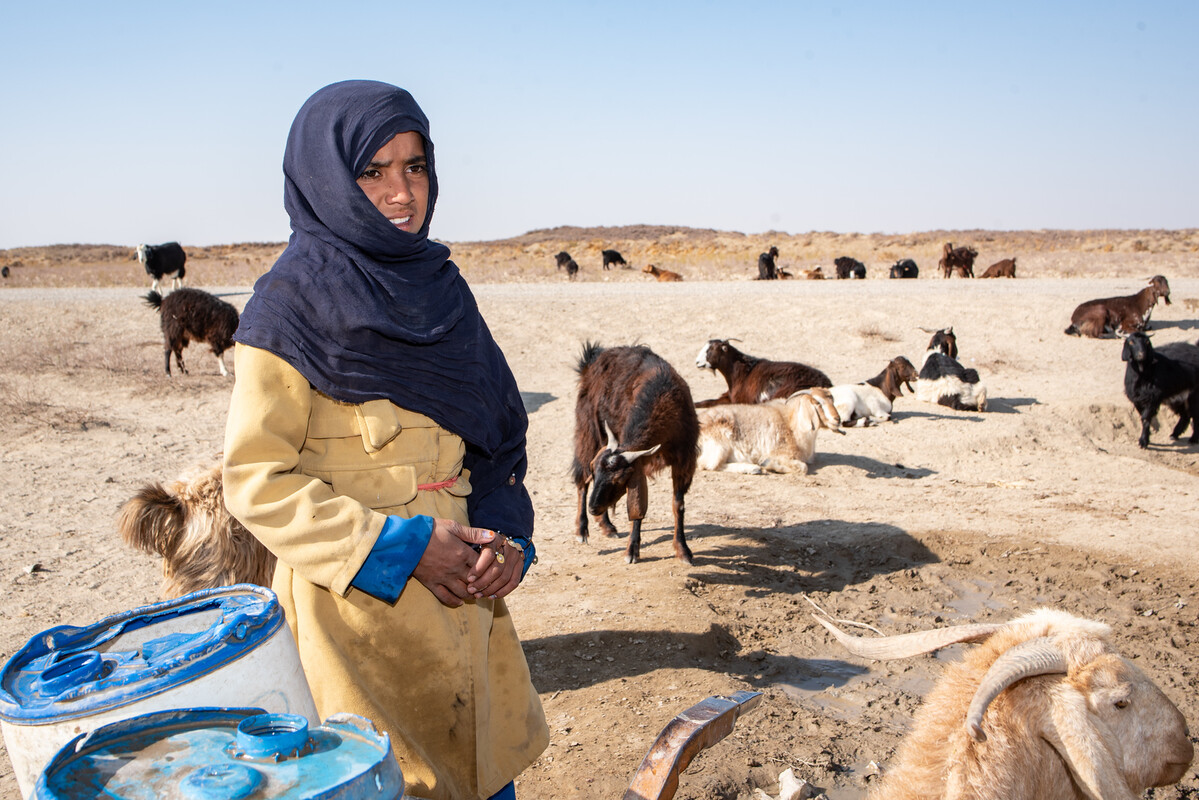The UN’s chief described Afghanistan’s situation as “deeply troubling”.
Officials from Qatar and the United Nations discussed the latest developments in Afghanistan on Wednesday as the Gulf state continues its engagement with the international community to address Kabul’s crises.
The meeting was held in Doha between Qatar’s special envoy for counter-terrorism Dr. Mutlaq Al Qahtani and the Special Representative of the UN’s Secretary-General for Afghanistan Roza Otunbayeva.
“During the meeting, they discussed the cooperation relations between the State of Qatar and the UN, and the latest developments in Afghanistan,” Qatar’s foreign ministry said in a statement without disclosing further details on the discussions.
The meetings were held just after the two year anniversary of the Taliban’s militarily takeover of Kabul which followed a decades-long battle in Afghanistan.
At the time, former Afghan President Ashraf Ghani fled the country with what reports claimed to be “tonnes of cash”, leaving behind an entire population facing uncertainty and dire humanitarian and economic conditions.
Qatar had emerged as a key mediator in the lead up to the events and held regular talks between all parties involved in Afghanistan’s conflict, including the 2020 Intra-Afghan talks and US-Taliban meetings.
Though geographically small, the Gulf state assumed a much larger role when the Taliban captured control of the country in August 2021 and managed to mobilise mass evacuations from the ground.
Two years on, Qatar has maintained its role in serving as a diplomatic bridge between the Taliban and the international community, particularly the west, in an effort to resolve Afghanistan’s multiple crises.
Earlier this month, Qatar hosted the first direct talks of the year, bringing together the Taliban and officials from the United States.
The meeting ended on a positive note with the US expressing its openness for technical dialogue with the Taliban regarding the stabilisation of its economic issues, though it ruled out officially recognising the interim government.
In May, the UN hosted a crucial global meeting on Afghanistan in the Qatari capital, though no Taliban officials were invited to participate. To date, no country has officially recognised the Taliban-led administration.
“No other country hosts as many diplomats focused on Afghan policy, both from the community of major donors and from the Taliban themselves. In this respect, Qatar has emerged as an important hub of diplomacy with regards to Afghanistan,” Graeme Smith, a senior analyst for the International Crisis Group, told Doha News on Monday.
Aside from hosting meetings between the Taliban and the west, Qatar has continued its dialogue with the acting Afghan administration. Analysts view Qatar as a country that is in a “unique position” when it comes to the Afghan file, especially due to its years-long hosting of the Taliban office in Doha, as per a US request.
Humanitarian and rights situation
On the ground in Afghanistan, the humanitarian conditions have continued to worsen due to the compounded effects of years of war, drought and the Covid-19 outbreak.
More than 28 million people in Afghanistan are in need of humanitarian assistance in 2023, representing an increase from 18.4 million in 2021, as per figures shared by Medair.
Governments and entities around the world have also appeared to hesitate in providing aid due to sanctions, dealing a blow to the country’s economic development.
Medair noted that “many donors have reduced or suspended their funding due to political and security concerns” over Afghanistan.
In a separate report, the Norwegian Refugee Council said that “over-compliance and misconceptions about the scope of international sanctions have led to severe obstacles for the Afghan business community”.
Since 2021, the Taliban has called on the US to release $7 billion in Afghan central bank funds that have been frozen in the Federal Reserve Bank of New York following the events of 2021.
While President Biden ordered the release of the funds last year, he only assigned $3.5 billion of the total amount to Afghans living under dire humanitarian conditions. The other half of the funds was allocated to victims of the 9/11 attack, a move that many have described as the US’ “punishment” of Afghans.
Meanwhile, concerns have mounted over the human rights in the country. Since the 2021 takeover, the Taliban has launched a mass crackdown on the press and introduced controversial repressive policies targeting women and girls.
In March 2022, the Taliban banned girls from going to school, then in December 2022, the prohibited females from attending university and barred Afghan women from working with non-governmental organisations.
More recently, the ruling group demanded the closure of all beauty salons.
In a post on X, formerly known as Twitter, on Tuesday, UN Secretary-General Antonio Guterres described conditions in Afghanistan as “deeply troubling”.
“It is now two years since the Taliban takeover of Afghanistan and the situation in the country remains deeply troubling, including the severe restrictions imposed on the rights of women and girls,” the UN official said on the two-year anniversary of the Taliban takeover.
He added: “The international community must not forget the people of Afghanistan.”







